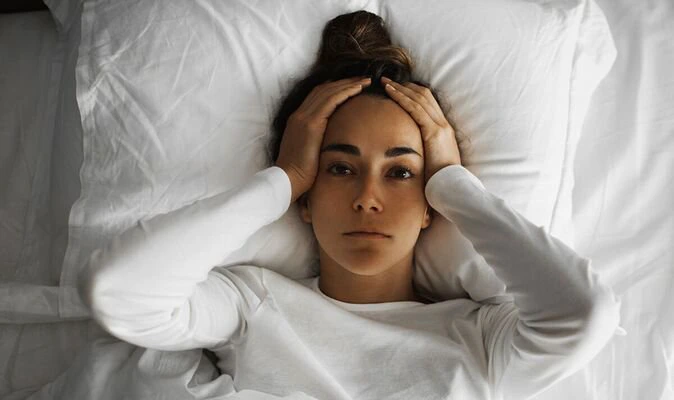If you’ve been lying there for 30 minutes or longer unable to fall asleep it is time to take action, a doctor said.
A doctor revealed the one thing you should never do if you can’t sleep... CLICK TO READ THE FULL NEWS HERE▶▶
No matter how tired we are by the end of the day, it can sometimes seem like an impossible task to get to sleep at night. Stress, anxiety, illness or pain are all factors that can prevent us from sleeping well.
According to the NHS, one in three of us will experience difficulty sleeping at some point so for anyone suffering from a bout of insomnia – you are not alone.
If this is a problem you face regularly a doctor shared some advice on falling asleep, including what not to do.

Speaking on social media platform TikTok, Doctor Myro Figura, told people not to stay in bed if they’ve been failing to fall asleep for 30 minutes.
This is because your brain is “too activated” and you need to change your environment.
Dr Figura explained: “The number one thing you do not want to do is stay in bed. If after 30 minutes, you can’t fall asleep, your brain is too activated, and you need to change the environment.”
He suggested going into another room and taking part in some sort of activity.
“Go to another room and do something boring in a low-light environment,” he said. “Things like knitting, reading, staring out of the window. You need to restart the secretion of melatonin by your pineal gland.”
He warned: “But absolutely no screens. Your laptop, your phone will emit blue light that will interrupt that cycle.
“If you’re still not feeling tired, try deep breathing techniques, super-somnolent meditation – look these up.”
He also recommended taking melatonin if you can’t sleep. However, melatonin is only available as a prescription medicine in the UK and the NHS warns against ordering it online for safety reasons.
According to the Sleep Foundation, most adults with healthy sleep patterns take anywhere from 15 to 20 minutes to fall asleep on a typical night.
The NHS advises speaking to your GP if:
Changing your sleeping habits has not helped your insomnia
You’ve had trouble sleeping for months
Your insomnia is affecting your daily life in a way that makes it hard for you to cope.











